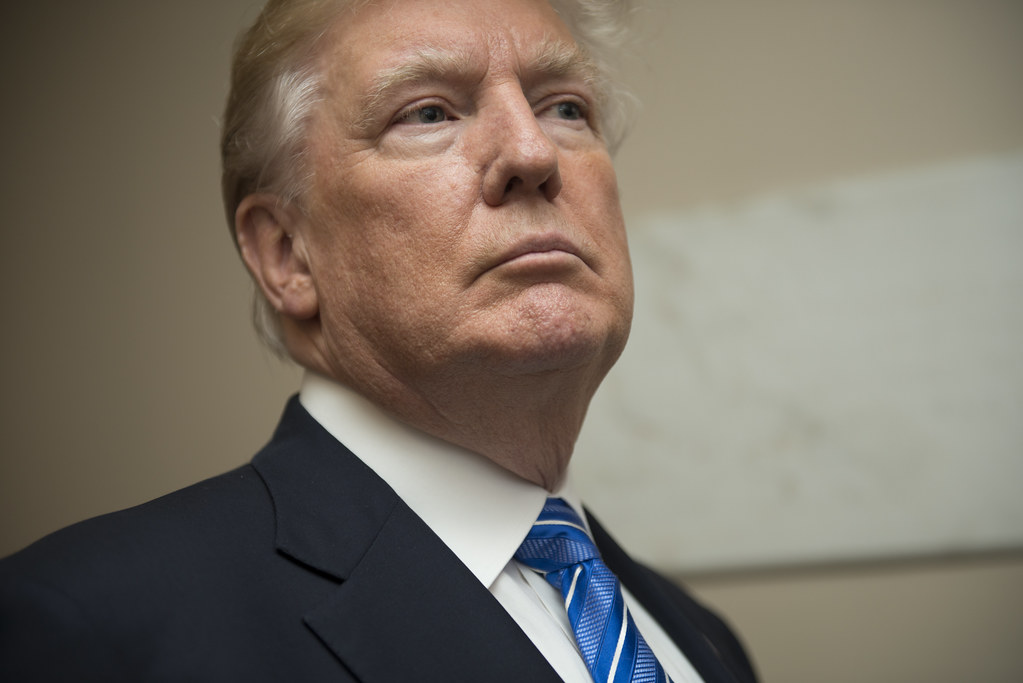Key Takeaways:
- The Trump administration approved sending over 100 National Guard troops to Chicago.
- A judge in Oregon temporarily blocked Trump from sending federal troops to Portland.
- Protests in both cities continue against federal law enforcement actions.
- Tensions grow between the White House and Democrat-led cities over public safety.
Why Is Trump Sending Troops Now?
The keyword is “federal troops,” and the question many Americans are asking is: why is President Trump sending federal troops into cities like Chicago and Portland?
Over the weekend, the Trump administration made a big move. It approved sending hundreds of National Guard troops into Chicago. At the same time, a federal judge in Oregon stopped Trump from sending federal troops into Portland, at least for now.
These actions have sparked more debate across the country. People are wondering: Is this helping public safety, or is it making things worse?
Tensions Rise Between Trump and City Leaders
President Trump has been clear about why he wants to send federal troops to certain cities. He says crime is rising and that local leaders are failing to keep people safe. His plan is to send federal forces to respond to protests, riots, and gun violence.
Many mayors and state governors disagree. They say these actions may only stir up more tension. In cities like Portland and Chicago, people have marched for weeks, asking for police reform and an end to racial injustice.
When federal troops showed up, the protests didn’t stop — instead, they grew larger. Critics of the president say these troops are not helping. Instead, they believe their presence is making people feel more afraid and angry.
Federal Troops Spark More Protests
Portland has been one of the biggest hotspots for protests this year. After federal troops arrived, the city saw even more unrest. Some citizens claimed that federal agents in camouflage grabbed people off the streets and took them away in unmarked vans.
The situation became so intense that a judge in Oregon told the Trump administration to pause its actions. The judge said the federal troops might be violating protesters’ rights.
Chicago Is the New Focus for Federal Troops
Now, attention has turned to Chicago. The White House says the city is dealing with a surge in gun violence. Over recent weekends, shootings have sadly taken many lives.
Because of this, Trump approved sending more than 100 National Guard troops into the city. He says these troops won’t be there to break up protests, but instead to fight crime and support local police.
Still, many in Chicago are worried. Will the arrival of federal troops help lower the violence? Or will it lead to even more protests, like in Portland?
Local Leaders Push Back
Chicago’s Mayor Lori Lightfoot is one of Trump’s many critics. She has voiced concern that federal troops could be used to control peaceful protesters, not help reduce crime.
She says the city is already working on better community programs that aim to stop violence. “We don’t need troops. We need resources,” she recently stated.
Other leaders across the country agree. They want federal money for jobs, schools, and health care — not a military-like presence in their neighborhoods.
Public Opinion Splits Over Federal Troops
Americans seem to be divided. Some people believe federal troops can help restore order in cities that are seeing more violence. Others feel this approach is too extreme and risks hurting more people than it helps.
Social media is filled with debate. Some say Trump is sending troops as a strategy to gain support before the election. Others think he’s genuinely trying to protect citizens.
No matter the reason, the use of federal troops is now a major political issue. It’s likely to remain in the spotlight for the upcoming months.
What’s Next for Portland and Chicago?
Right now, federal troops are still in question in Portland. Thanks to the court ruling, the Trump administration can’t move forward with its full plan yet. The judge wants to hear more arguments about whether civil rights are at risk.
In Chicago, National Guard troops are expected to begin operations soon. Officials say they will focus on gang violence and drug activity, not protests.
But citizens are watching closely. Many fear what happened in Portland could happen in Chicago next.
The Bigger Picture of Federal Troops in Cities
This moment is part of a larger story happening across the United States. Protests for racial equality have become a national movement. At the same time, many cities are struggling with violence.
People want change, but they don’t always agree on how that change should happen.
Using federal troops may seem like a quick solution, but it doesn’t solve long-term problems. Issues like poverty, lack of education, and police mistrust still need real answers.
Leaders and citizens will have to come together to find better solutions — ones that rely on unity, not force.
Final Thoughts
The use of federal troops in American cities remains controversial. Some see it as necessary. Others fear it goes against what the country stands for. Chicago and Portland are now at the center of this growing national argument.
One thing is clear: decisions made today will have a huge impact on how America moves forward with law enforcement, protest rights, and public safety in the future.
Frequently Asked Questions
Why are federal troops being sent to Chicago?
President Trump says federal troops are needed to help reduce gun violence and crime in Chicago.
What is happening in Portland with federal troops?
A judge temporarily stopped the Trump administration from sending more troops there, due to concerns about civil rights.
Are federal troops targeting peaceful protesters?
Critics say that in Portland, some peaceful protesters were targeted. The government says they are focused on stopping violence and property damage.
What do local leaders think of Trump’s actions?
Many mayors, including Chicago’s, oppose the use of federal troops. They believe local community programs are a better answer.

